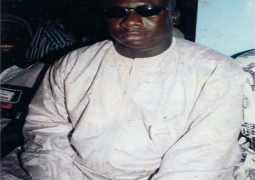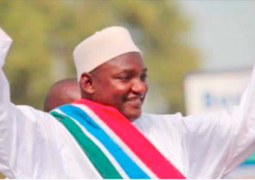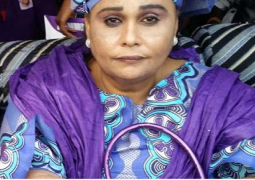He
was a world leader who was not a household name. But he definitely made an
impact as an advocate for the sexual and reproductive rights of women and
girls.
Dr.
Babatunde Osotimehin, executive director of the U.N. Population Fund, died on
Sunday night at his home.
“Our
world lost a great champion of well-being for all, especially women &
girls,” tweeted U.N. Secretary General Antonio Guterres.
The
Nigerian doctor, 68, had led the UNFPA since 2011. The year that he was
appointed, an article in The Lancet made it clear how this father of five was
guided by lessons from his own parenthood. He told how his children “teach me
about their own lives” – and how he was going to let the world’s young people
teach him in his new job: “Too often we imagine that we know what young people
need” but to his mind, adults need to “listen and experience, to learn about
our children, our ability to allow them their space.”
That
philosophy guided his work at UNFPA. “Family planning is not a privilege but a
right. Yet, too many women — and men — are denied this human right,” Osotimehin
said in 2012.
He
sought to eliminate preventable maternal deaths and harmful practices such as
female genital mutilation. And he aimed to ensure access to family planning for
all.
“...wherever
I travel, I continue to meet women and girls who tell me they are unable to
exercise their right to family planning and end up having more children than
they intend, burdening them economically, harming their health, and undermining
opportunities for a better life for themselves and their families,” Osotimehin
wrote in a 2012 report.
“The
international community made a commitment in 1994 to all women, men and young
people to protect their rights as individuals to make one of life’s most
fundamental decisions. It is high time we lived up to that commitment and made
voluntary family planning available to all.”
In
2015, a UNFPA program helped about 18 million women get modern contraceptives
and access reproductive health care, according to a report by the agency.
Sarah
Craven, director of the UNFPA office in Washington, D.C., says her boss was
kind and compassionate to his staff. He called her to offer condolences after
her father died.
“I
feel like he was a great friend and a mentor, and I’m going to miss him
terribly,” Craven says.
Not
that long ago, he talked to Craven about his own mother, telling her: “I am who
I am because of my mother teaching me how important it was to honor and respect
and advocate for women and girls.”
She
remembers how he would proudly identify as a feminist — and sometimes make the
comment at all-male panels that he was an “honorary woman.” That line would get
laughs, she says, but it wasn’t meant as a joke. It was his way of making a
point.
“Here
was somebody who was so supremely gifted as a physician, as a politician, and
yet he had chosen to take on, really, a thankless task — to advocate for women
and girls in the most trying and dire circumstances. And he did it with such
passion and commitment and energy,” Craven says. “He will be impossible to
replace.”
Osotimehin
had previously served as Nigeria’s Minister of Health. He was married and had
five children and several grandchildren, according to UNFPA.
Guest
editorial
“Even
death is not to be feared by one who has lived wisely. ”
Buddha




